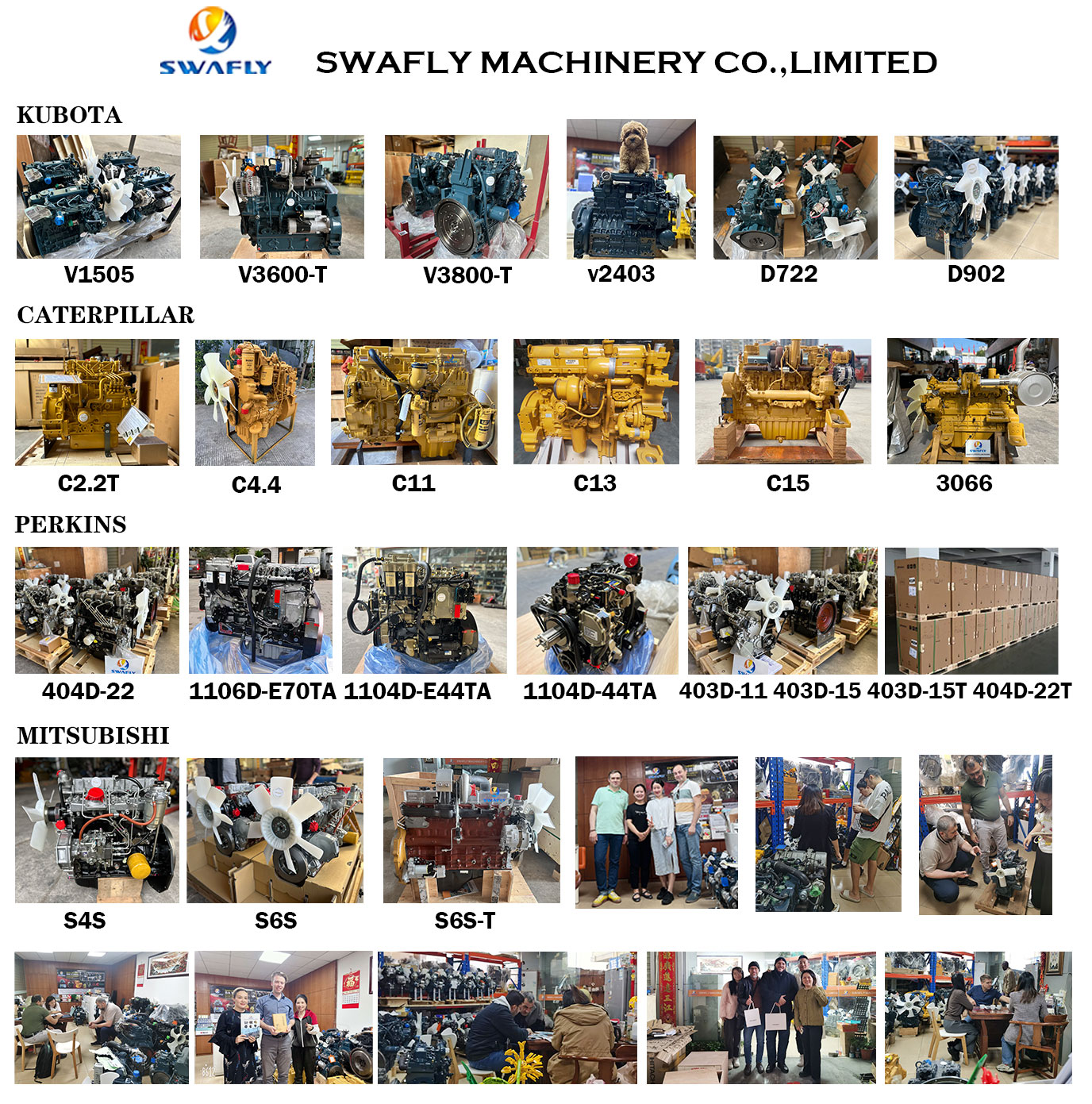
- English
- Español
- Português
- русский
- Français
- 日本語
- Deutsch
- tiếng Việt
- Italiano
- Nederlands
- ภาษาไทย
- Polski
- 한국어
- Svenska
- magyar
- Malay
- বাংলা ভাষার
- Dansk
- Suomi
- हिन्दी
- Pilipino
- Türkçe
- Gaeilge
- العربية
- Indonesia
- Norsk
- تمل
- český
- ελληνικά
- український
- Javanese
- فارسی
- தமிழ்
- తెలుగు
- नेपाली
- Burmese
- български
- ລາວ
- Latine
- Қазақша
- Euskal
- Azərbaycan
- Slovenský jazyk
- Македонски
- Lietuvos
- Eesti Keel
- Română
- Slovenski
- मराठी
- Srpski језик
Maximizing Efficiency: How Excavator Engines Are Transforming the Construction Landscape
2025-02-13
The construction industry has always been a cornerstone of human societal development. With the advancement of technology, the innovation of construction tools and equipment has continuously propelled the industry forward. Among these, excavators, as indispensable heavy machinery on modern construction sites, have seen their core component—the engine—play a crucial role in transforming the construction landscape. This article explores how excavator engines, through maximizing efficiency, are reshaping the construction industry, focusing on their technological evolution, efficiency improvements, environmental impact, and future trends.
1. Technological Evolution of Excavator Engines
1.1 From Steam Power to Internal Combustion Engines
Early excavators primarily relied on steam power. While this was a significant breakthrough at the time, it was inefficient, complex to operate, and highly polluting. With the maturation of internal combustion engine technology, excavators gradually transitioned to diesel engines. Diesel engines not only provided higher power output but also significantly improved fuel efficiency, enabling excavators to accomplish more work in less time.
1.2 Introduction of Electronic Control Technology
In the late 20th century, the introduction of electronic control technology further enhanced the performance of excavator engines. By precisely controlling fuel injection and air intake, electronically controlled engines could automatically adjust power output under different operating conditions, achieving higher fuel efficiency and lower emissions. Additionally, electronic control technology made engine maintenance more convenient and fault diagnosis more accurate, reducing downtime and improving overall work efficiency.
1.3 Hybrid and Electrification
In recent years, with growing environmental awareness and the intensification of energy crises, hybrid and fully electric excavators have gradually entered the market. Hybrid excavators combine the advantages of internal combustion engines and electric motors, ensuring power output while significantly reducing fuel consumption and emissions. Fully electric excavators, powered entirely by batteries, achieve zero emissions and are particularly suitable for urban construction sites with high environmental requirements.
2. Impact of Efficiency Improvements on the Construction Landscape
2.1 Accelerated Construction Speed
The efficiency improvements in excavator engines have directly led to faster construction speeds. High-efficiency engines can complete heavy tasks such as earth excavation and foundation treatment in less time, thereby shortening the overall project timeline. This not only reduces construction costs but also allows buildings to be put into use more quickly, providing strong support for socio-economic development.
2.2 Enhanced Construction Precision
The precise control capabilities of modern excavator engines have also improved construction accuracy. Through the fine-tuning of electronic control systems, excavators can perform detailed operations in complex terrains, reducing human error and enhancing construction quality. This is particularly important for high-rise buildings, bridges, tunnels, and other projects that demand high precision.
2.3 Expanded Construction Scope
The widespread application of high-efficiency engines has enabled excavators to operate in a broader range of regions and more complex environments. Whether in mountains, deserts, or polar regions, modern excavators can handle various challenges. This has not only expanded the market scope of the construction industry but also promoted the globalization of infrastructure development.
3. Environmental Impact and Sustainable Development
3.1 Advances in Emission Control
With increasingly stringent environmental regulations, emission control technologies for excavator engines have also advanced. By adopting advanced exhaust treatment systems and low-sulfur fuels, modern excavators have significantly reduced emissions. This not only minimizes environmental pollution but also improves air quality on construction sites, protecting workers' health.
3.2 Reduction in Noise Pollution
Efficient engine designs have also led to a reduction in noise pollution. By optimizing engine structures and using soundproofing materials, the noise levels of modern excavators during operation have been significantly lowered. This is particularly important for urban construction sites, reducing disturbances to nearby residents and enhancing social harmony.
3.3 Optimization of Resource Utilization
High-efficiency engines not only improve fuel efficiency but also optimize resource utilization through intelligent management systems. For example, by real-time monitoring of engine status and workload, the system can automatically adjust operating modes, avoiding unnecessary energy waste. This not only reduces operational costs but also contributes to achieving sustainable development goals.
4. Future Trends and Prospects
4.1 Intelligence and Automation
With the development of artificial intelligence and the Internet of Things, future excavator engines will become more intelligent and automated. Equipped with sensors and data analysis systems, excavators will be capable of autonomous operation and remote control, further improving construction efficiency and safety. Additionally, intelligent systems will be able to predict engine failures, enabling proactive maintenance and reducing downtime.
4.2 Application of New Energy Sources
In the future, new energy technologies will be more widely applied in the field of excavator engines. Beyond existing hybrid and fully electric technologies, new energy sources such as hydrogen fuel cells are expected to become power sources for excavators. These new energy sources not only achieve zero emissions but also provide longer endurance and faster charging, further driving the green transformation of the construction industry.
4.3 Innovation in Materials and Manufacturing Processes
With advancements in materials science and manufacturing processes, future excavator engines will become lighter, more durable, and more efficient. For example, the use of high-strength composite materials and 3D printing technology can significantly reduce engine weight and increase power density. This will not only enhance the mobility of excavators but also reduce energy consumption and extend service life.
Conclusion
The technological advancements in excavator engines have not only improved construction efficiency and precision but also reduced environmental impact, promoting sustainable development in the construction industry. In the future, with the widespread application of intelligent, automated, and new energy technologies, excavator engines will continue to transform the construction landscape with maximized efficiency, making greater contributions to the development of human society. The face of the construction industry is undergoing profound changes due to these technological innovations, all of which are driven by the continuous evolution of excavator engines.
For more information, please visit websiate at www.swaflyengine.com



